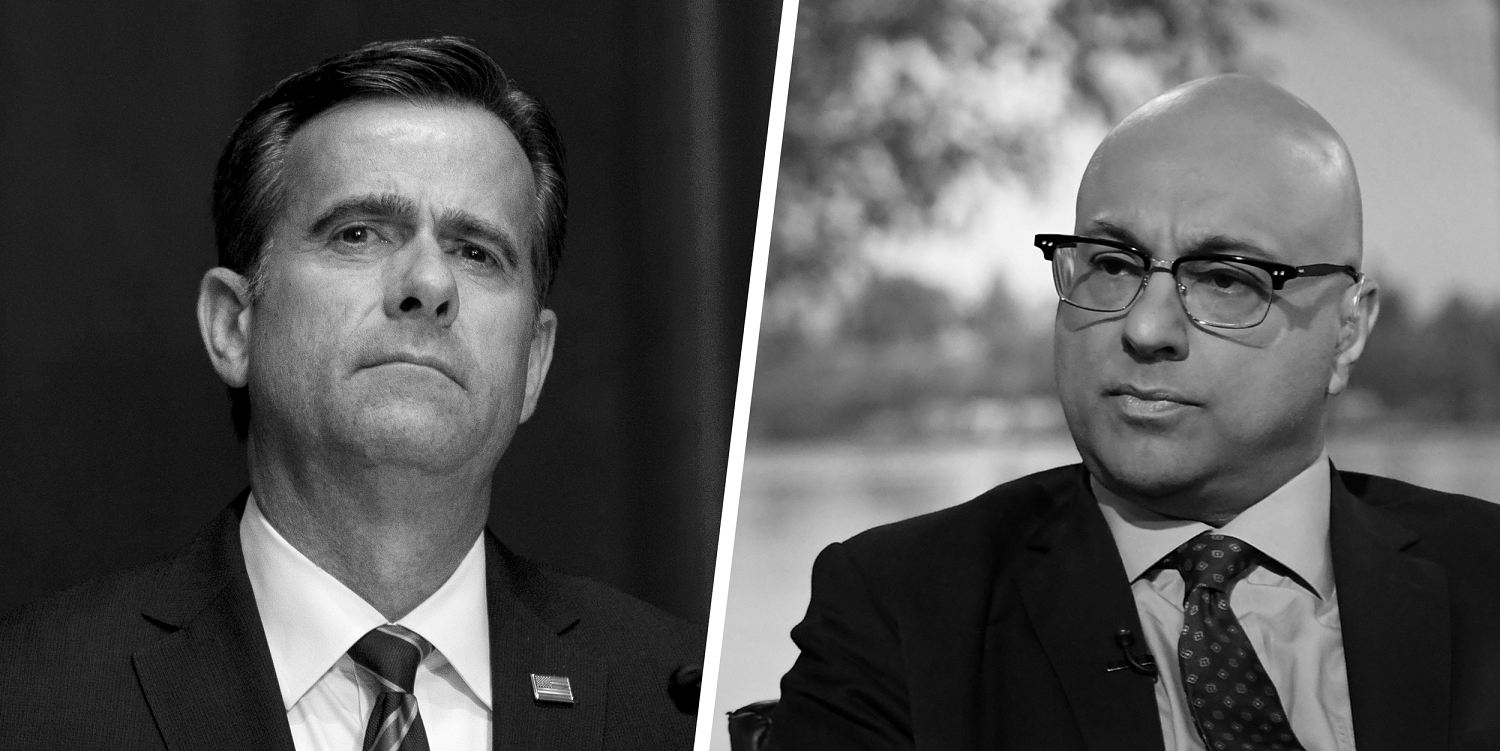
This is an adapted excerpt from the Jan. 12 episode of “Velshi.”
On Wednesday, the Senate Intelligence Committee will hold a confirmation hearing for Donald Trump’s pick to run the CIA: John Ratcliffe. When compared to some of the president-elect’s more controversial Cabinet picks, Ratcliffe is not expected to face major difficulties being confirmed. But that wasn’t always the case.
At the time, Ratcliffe was a controversial pick. So much so, that the first attempt to install him as DNI failed.
Ratcliffe, a former congressman from Texas, served as Trump’s director of national intelligence for about six months in 2020. Before that, he served in the House from 2015 to 2020. During that time, he built his reputation as a fierce loyalist to Trump.
In 2019, Trump named Ratcliffe as one of several House Republicans to serve on his impeachment advisory team. The then-congressman ardently defended Trump during those first impeachment proceedings, which centered around a phone call between Trump and Ukrainian President Volodymyr Zelenskyy.
That same year, Ratcliffe was critical of the investigation into Russian interference in the 2016 presidential election, suggesting that FBI and intelligence officials had shown political bias and possibly committed crimes.
This must have received the attention of the White House because, in July 2019, Trump nominated Ratcliffe to be the director of national intelligence after Dan Coats stepped down.
At the time, Ratcliffe was a controversial pick. So much so that the first attempt to install him as DNI failed. There were concerns among some members of Congress about Ratcliffe’s experience and qualifications.
There were also stories circulating that Ratcliffe had overstated or misrepresented some things on his resume. As NBC News’ Ken Dilanian reported at the time, when Ratcliffe had been a federal prosecutor in Texas, he boasted on his website about having “put terrorists in prison.” But NBC News and other news organizations found no evidence that he had ever prosecuted a terrorism case.
Just a week after Ratcliffe was initially tapped for the role, he withdrew from consideration for DNI. He said in a statement at the time that, while he believed he could have done the job, he did not “wish for a national security and intelligence debate surrounding [his] confirmation, however untrue, to become a purely political and partisan issue.”
But, seven months later, Trump renominated Ratcliffe for the same position. He was confirmed by a sharply divided Senate in May 2020.
In September of that year, as Trump’s new director of national intelligence, Ratcliffe drew criticism from Democrats for declassifying unverified Russian intelligence. The intel purported that Hillary Clinton had approved an effort to “stir up a scandal against U.S. Presidential candidate Donald Trump by tying him to Putin and the Russians’ hacking of the Democratic National Committee.”
The assessment had already been rejected by Democrats and Republicans in the Senate Intelligence Committee as having no factual basis, according to Politico. Sources also told The New York Times that special counsel Robert Mueller had evaluated and rejected the information.
Ratcliffe himself even acknowledged that the intel community “does not know the accuracy of this allegation.” Some Democrats accused Ratcliffe of politicizing the intelligence community.
Some Democrats accused Ratcliffe of politicizing the intelligence community.
Sen. Mark Warner of Virginia called the move “disturbing,” especially so close to a presidential election. And Oregon Sen. Ron Wyden said, “[Ratcliffe’s] politicization of intelligence, including through selective releases to political allies, damages the country and undermines the intelligence community he purports to lead.”
Now Ratcliffe will once again enter the Senate confirmation arena, this time tapped to lead the CIA. When Trump announced his intentions to nominate Ratcliffe in November, former intelligence officers who worked with him told NBC News he is “a relatively constructive figure compared with some other potential Trump appointees who are more hostile to the spy agencies.”
Although Ratcliffe is not expected to face major difficulties being confirmed, there’s still concern about his place at the top of the CIA. As NBC News reports, “It is unclear whether Ratcliffe would be ready to push back against proposals from Trump’s team that could politicize the country’s most powerful intelligence agency.”
Allison Detzel contributed.
